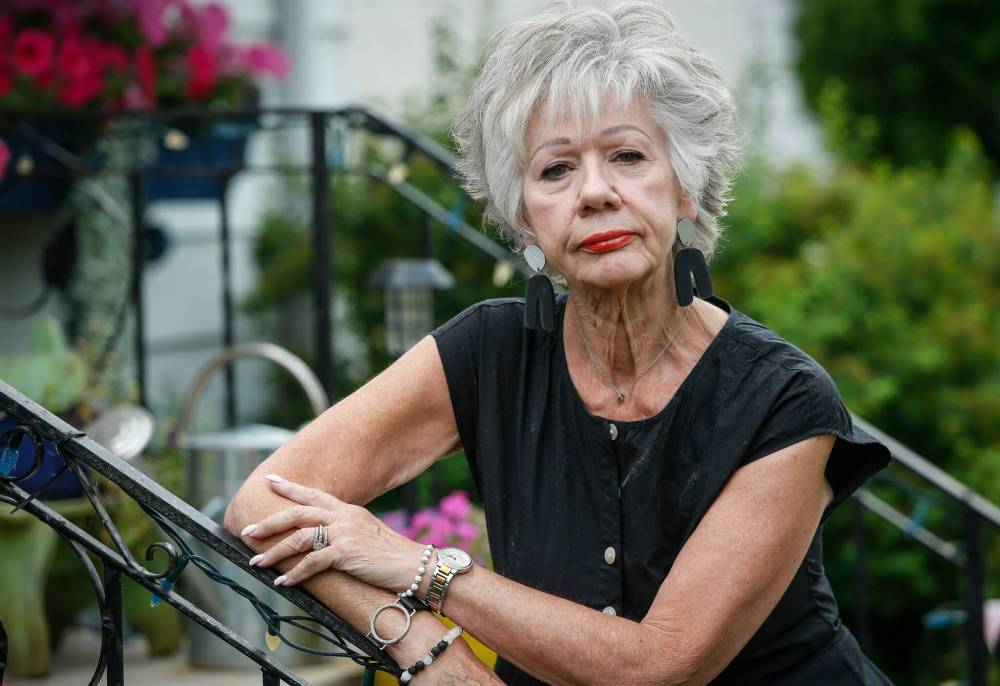Better pay, working conditions crucial for northern nursing station staffing improvements, union says
Advertisement
Read this article for free:
or
Already have an account? Log in here »
To continue reading, please subscribe:
Monthly Digital Subscription
$0 for the first 4 weeks*
- Enjoy unlimited reading on winnipegfreepress.com
- Read the E-Edition, our digital replica newspaper
- Access News Break, our award-winning app
- Play interactive puzzles
*No charge for 4 weeks then price increases to the regular rate of $19.00 plus GST every four weeks. Offer available to new and qualified returning subscribers only. Cancel any time.
Monthly Digital Subscription
$4.75/week*
- Enjoy unlimited reading on winnipegfreepress.com
- Read the E-Edition, our digital replica newspaper
- Access News Break, our award-winning app
- Play interactive puzzles
*Billed as $19 plus GST every four weeks. Cancel any time.
To continue reading, please subscribe:
Add Free Press access to your Brandon Sun subscription for only an additional
$1 for the first 4 weeks*
*Your next subscription payment will increase by $1.00 and you will be charged $16.99 plus GST for four weeks. After four weeks, your payment will increase to $23.99 plus GST every four weeks.
Read unlimited articles for free today:
or
Already have an account? Log in here »
Hey there, time traveller!
This article was published 30/07/2024 (482 days ago), so information in it may no longer be current.
Staffing levels at nursing stations in northern Manitoba First Nations won’t improve unless wages and working conditions do, the union representing federal health-care workers warns.
Nisichawayasihk Cree Nation in Nelson House, located about 800 kilometres north of Winnipeg, closed its nursing station to everything but urgent cases a year ago.
Pimicikamak Cree Nation, also known as Cross Lake, located about 500 kilometres north of Winnipeg, declared a state of emergency in March, citing a nursing shortage.

JOHN WOODS / FREE PRESS
Lynn Ohlson, president of PIPSC, the union representing 4,400 federal medical professionals, is concerned that nurse wages and work conditions are not high enough to keep nurses out of the private agencies.
Most of the 21 nursing stations serving Manitoba First Nations that are operated by Indigenous Services Canada are doing so with half the staff needed, Professional Institute of the Public Service of Canada health services president Lynn Ohlson told the Free Press.
The union represents 4,400 federally employed health staff, including more than 125 nurses who work in northern Manitoba First Nations.
Most of the nursing stations are supposed to have between four and five nurses on staff, but are instead operating with a minimum of two, Ohlson said.
“We have a huge recruitment and retention problem,” she said.
The positions require a minimum of two years experience in emergency nursing, and several advanced certificates.
To fill gaps, Ottawa is turning to private staffing agencies, which offer nurses higher wages and provide flexibility over work schedules and locations.
Ohlson fears “further privatization” if the current trend continues.
“It’s care for profit, and that’s just something that we are just ideologically against,” she said, adding the shortage is not strictly a money issue.
“Working conditions are so deplorable at the moment,” she said.
The nurses working in the isolated and under- resourced communities are always on call, even after working a full shift.
Concerns about personal safety in the communities, and the complexity of emergencies — handled, at times, by just two nurses — add to the challenges.
“One of the biggest problems that we’re facing right now… is just complete and utter burnout,” Ohlson said.
The situation has given rise to “tired and overworked” staff and communities that are “very frustrated that they’re not getting the services that they need,” she said.
“From a working point of view, it’s getting to be pretty much a crisis.”
To improve conditions, the union says nursing stations need to be better staffed. But federal wages will need to rise in order to compete with private staffing agencies.
Ohlson doesn’t know precisely how much agency nurses are being paid.
“All I know is it’s a substantial difference,” she said.
The average hourly wage for a federal northern nurse is currently $47 per hour.
In 2022, Indigenous Services Canada tripled recruitment and retention bonuses from previous levels, through to 2025.
At hiring, a full-time nurse currently receives $6,750, followed by an additional payment of $9,750 after a year of employment. A “retention allowance” of $16,500 is also paid out annually.
Ohlson said the increased financial incentives haven’t improved the situation.
“You get to the point where you can’t pay someone enough money to do something, and it’s getting close to that,” she said.
Federal nurses have been working under an expired contract since October 2022.
Ottawa and the union are currently at the negotiating table and nearing a tentative agreement.
PIPSC acting president Eva Henshaw wouldn’t divulge details Tuesday about the talks, but told the Free Press an expected tentative agreement will fall short of what’s required.
“It could easily take the government up to six (more) years to fix this gap in order to solve the problem around recruitment and retention for nurses,” Henshaw said.
jordan.snobelen@freepress.mb.ca





